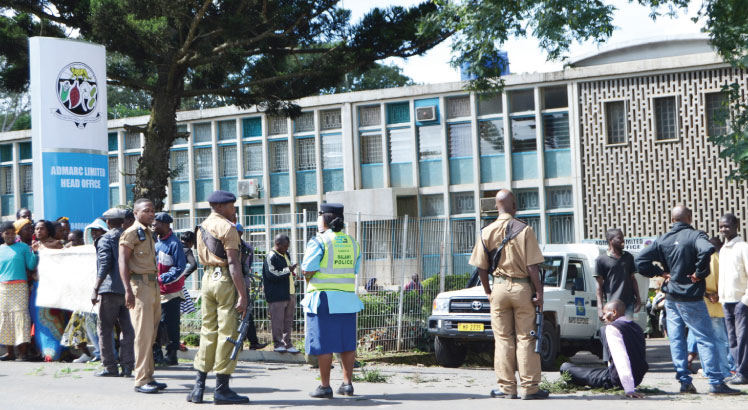Debate ensues on Admarc revival
Diverse views have emerged on how to resuscitate Agricultural Development and Marketing Corporation (Admarc) with a local think-tank proposing a public-private partnership (PPP) arrangement where the Malawi Government can hold a minority stake.
However, the Parliamentary Committee on Agriculture has faulted the proposal, observing that there are companies previously wholly-owned by the Malawi Government that were placed under PPP, but have not benefited the country.
On the other hand, the PPP Commission (PPPC) says the suggestion needs a feasibility study to ascertain its practicability.
In a written response to The Nation questionnaire on how best Admarc, which is daunted with funding challenges, can become a commercially-viable and profit-making entity, Malawi Agriculture Policy Advancement and Transformation Agenda (Mwapata) Institute executive director William Chadza said the State produce trader needs an investor to help it settle its debts and invest for commercial enterprising.
He said: “The the best pathway for Admarc going forward should be a public-private partnership with government taking on a minority shareholding. This will also bring efficiency of operations.

“The investment from the new investor can be used to pay off existing loans with the balance used for commercial operations.”
Chadza said Admarc is still relevant to the country’s economy, but needs to operate under a different structure.
He said: “Admarc has a unique position considering the large network and storage capacity currently spread throughout the country. The focus of Admarc should be on commercial activities, whether maize or other commodities, for both export and local markets.”
Chadza said if adopted, under the PPP, the role of the Malawi Government, the sole shareholder of Admarc at the moment, would be limited to providing a conducive policy environment for trade.
“Government should stop providing guarantees to Admarc. This is draining resources and encouraging the social nature of Admarc activities,” he said.
However, Parliamentary Committee on Agriculture chairperson Sameer Suleman said in an interview it would be risky to entrust a private player with the management of national food logistics.
He said: “Admarc should be supported by government to serve Malawians better. It should still be used for maize price stabilisation and ensure that people have food.
“What is needed is political will. Admarc was built from scratch, what would stop government from just fixing it? The infrastructure is already there, everything to have Admarc perform is there. What is needed is just restructuring and ensuring that Admarc gets funding.”
Suleman said Admarc could get back on its feet if government paid the grain trader the money it owes the corporation and inject some money to recapitalise it.
Meanwhile, Admarc board chairpeson Zachary Kasomekera has said a financial and economic analysis is the best way to determine what is best for Admarc.
He said people can make proposals on making Admarc efficient, but there would be need to check, through a thorough analysis, what would work best and why.
Said Kasomekera: “It will require more work than just a statement. You need facts.
“As of now, Admarc will operate the way it was established until the board decides to conduct an analysis which will also need a consultant to carry it out.”
In a separate interview, PPPC chief executive officer Patrick Kabambe said a feasibility study will have to be conducted to establish if a PPP arrangement would work for Admarc.
“In theory, it is something that can work. It is possible to have Admarc under concessions running the markets. Admarc would be getting a fee from the concession,” he said.
Kabambe said in the meantime, government has not requested PPPC to look into the matter.
In September 2022, Ministry of Agriculture shut down Admarc on the basis that it needed to be restructured to improve efficiency and return to profitability while in January this year Admarc’s entire workforce of 3 122 was retrenched to pave the way for the changes.
However, it has emerged that Admarc is yet to be funded to start implementing the changes.
Until 1987, Admarc was the sole buyer of smallholder produce, but in 2004, it was incorporated as a limited liability company with government owning 99 percent of the shares.
A Poverty and Social Impact Analysis on Admarc conducted by former Secretary to the Treasury Milton Kutengule alongside Antonio Nucifora and Hassan Zaman indicated that the parastatal’s social functions ceased in early 2000s.
The cessation followed the establishment of National Food Reserve Agency (NFRA) and the Department of Poverty and Disaster Management Affairs, now Department of Disaster Management Affairs.





